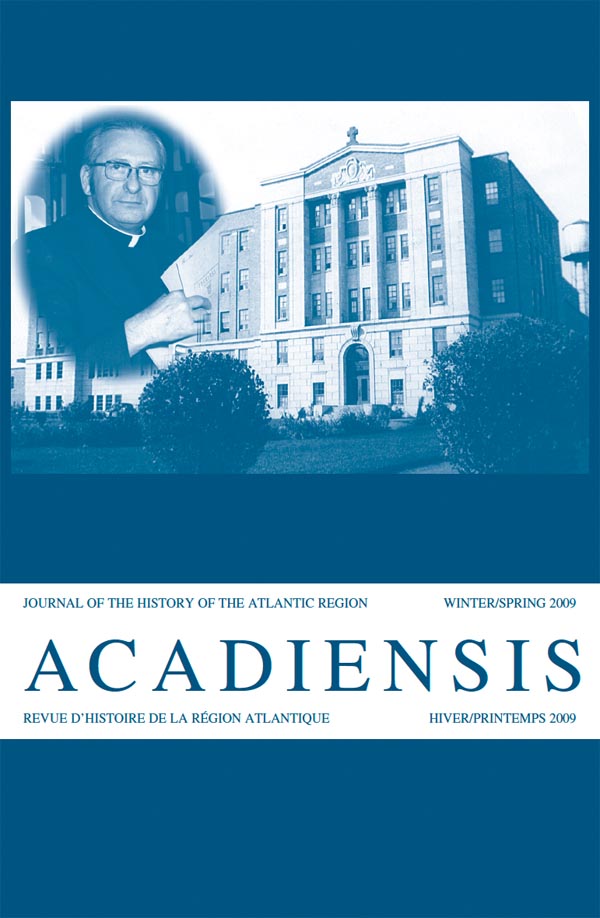Abstract
Louis J. Robichaud recognized at the time of his election as premier in 1960 that bureaucratic modernization was urgently needed to translate the political gains of the "Atlantic Revolution" into workable social and economic programs in New Brunswick. To provide leadership in civil service reform, Robichaud recruited seven ex-Saskatchewan Co-operative Commonwealth Federation bureaucrats who became known as the "Saskatchewan Mafia." This article uses their experiences to explore the bureaucratization of the Atlantic Revolution, and argues that this group played a crucial role in the transformation of New Brunswick’s political bureaucracy and thus in the modernization of the province as a whole. Résumé Lors de son élection comme premier ministre en 1960, Louis J. Robichaud reconnaissait qu’il était urgent de moderniser l’appareil bureaucratique afin que les gains politiques de la « Révolution atlantique » se traduisent par des programmes sociaux et économiques réalisables au Nouveau-Brunswick. Pour exercer le leadership dans la réforme de la fonction publique, Robichaud recruta sept anciens fonctionnaires sous le gouvernement de la Co-operative Commonwealth Federation de la Saskatchewan, que l’on appela la « Saskatchewan Mafia ». À partir de leurs expériences, cet article explore la bureaucratisation de la Révolution atlantique et fait valoir que ce groupe a joué un rôle crucial dans la transformation de la bureaucratie politique du Nouveau-Brunswick et, par conséquent, dans la modernisation de l’ensemble de la province.Copyright for articles published in this journal is retained by the author(s), with Acadiensis being granted a non-exclusive licence to each and every right in the work throughout the world. After publication of the work, the author(s) shall have the right to self-archive the work and to reprint the work in whole or in part in books authored by or edited by the author(s) without the payment of any fee. In these other formats, however, the author or authors are required to acknowledge the original publication of the work in the pages of the journal. In the case of any requests to reprint the work, Acadiensis will require a standard permission fee -- to be divided equally between the journal and the author. In the event that such requests are received by the author(s), the author(s) shall direct such requests to the journal.

